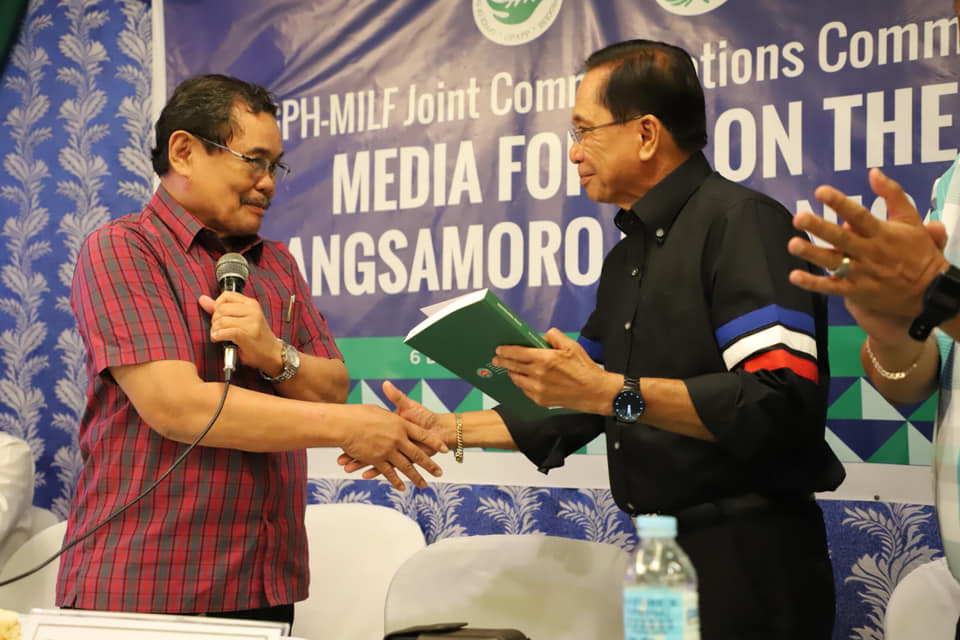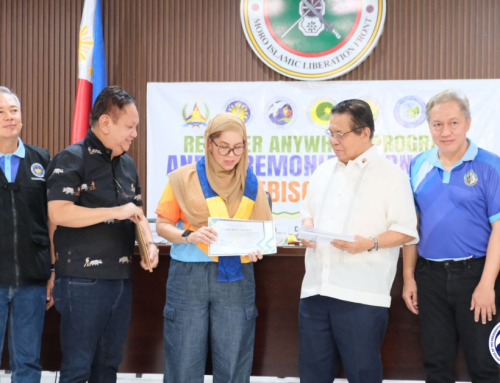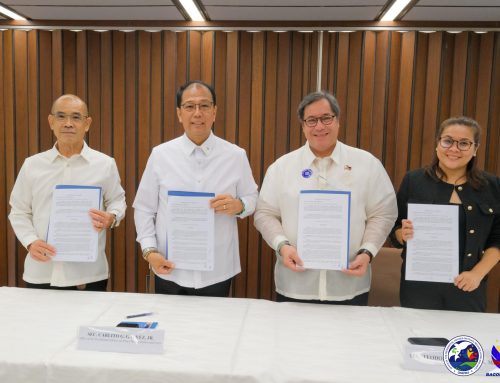COTABATO CITY, December 6, 2018 — Officials of the government and the leadership of the Moro Islamic Liberation Front (MILF) as well as members of the Bangsamoro Transition Commission (BTC) urged residents of the proposed Bangsamoro Autonomous Region in Muslim Mindanao (BARMM) to take part in the plebiscites early next year as the official campaign period for the ratification of the Bangsamoro Organic Law (BOL) starts on Friday, December 7.
This as Atty. Rey Sumalipao, Regional Director of the Commission on Elections, announced that the COMELEC is now ready to “have honest and orderly” plebiscites on January 21 and February 6, 2019.
“We will work to have clean elections,” Sumalipao said during a media forum here organized by the Joint Communications Committee of the government and the MILF.
The plebiscite will be held in two dates, first in the Autonomous Region in Muslim Mindanao (ARMM), Cotabato City and Isabela City on January 21, 2019.
For Lanao del Norte and North Cotabato, including the towns and barangays that filed their petitions to join the BARMM granted by the COMELEC, the plebiscite will be held on February 6, 2019.
If the BOL is ratified, the ARMM will be replaced by the BARMM, giving more political power to the Bangsamoro people to govern their ancestral lands.
The BOL is a product of a series of peace agreements between the Philippine Government and various Moro fronts. While it is largely anchored on the Comprehensive Agreement on the Bangsamoro (CAB) – a peace deal between the Philippine Government and the Moro Islamic Liberation Front (MILF) – the new law for the Bangsamoro reflects and builds upon the gains of previous Moro peace agreements since the 1970s.
A major campaign rally will be launched in this city on Monday, with thousands expected to attend the first salvo of the campaign for the ratification of the BOL.
At the media forum, former Presidential Peace Adviser Secretary Jesus Dureza allayed the concerns of the people over the establishment of the new BARMM.
“The BOL is not only for the Moro fronts, it is for all and it is inclusive,” he said.
Dureza said he will actively campaign for the BOL and the peace processes in the country in his private capacity.
“We should continue to support this effort and if we don’t get this last chance with President (Rodrigo Roa Duterte) we may never have it again in the future,” he said.
He encouraged the supporters to “go to areas where we need strong voices.”
“I’ll be supporting my peace partners and the advocacy even in my personal capacity,” he said.
Mohagher Iqbal, chairman of the MILF Peace Implementing Panel and member of BTC, called on the people to ratify the law, saying this will address the clamor of the Bangsamoro people for self-governance.
“The BOL is for the welfare not only of the Bangsamoro people but (also of) non-Muslims residing in the Bangsamoro areas,” he said. “The BOL is a formula for peace, development, and progress.”
The BTC commissioners were one in saying the people should give the BOL a chance.
Commissioner Jose Lorena said the people in the Bangsamoro area stand to benefit from security and economic development that will be fostered by the BOL.
“The BOL will put an end to the conflict dahil nagkasundo ang mga revolutionary movements. It will put an end to the marginalization that we have and it will provide an effective governance for the region,” he said.
Commissioner Maisara Dandamun-Latiph said the BOL is not an ordinary legislation but “ a peace document.”
Commissioner Susana Anayatin said the BOL recognizes the aspirations and articulations of the Moros in the past peace agreements as well as those expressed during the series of public consultations.
“The idea is that the BOL embraces everyone and is inclusive to all,” she said.
The law provides exercise of meaningful autonomy for the Moro people by charting their own political future through a democratic process. It also guarantees fiscal autonomy to the Bangsamoro Government by the provision of a block grant, greater share in local taxes and revenues obtained from natural resources, and a special development fund to enable the region to catch up with neighboring regions in Mindanao. ###











